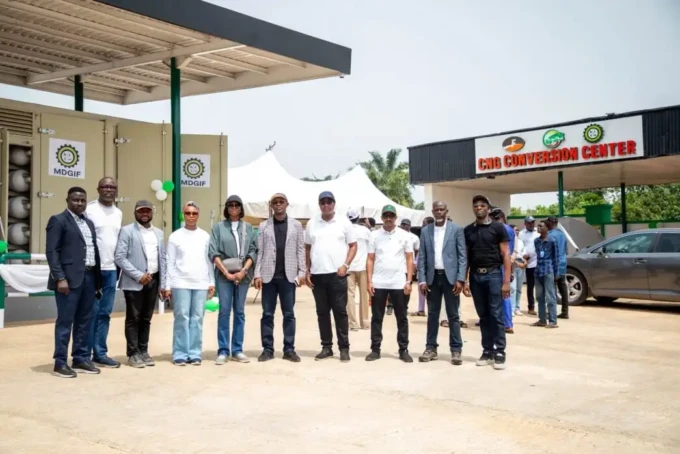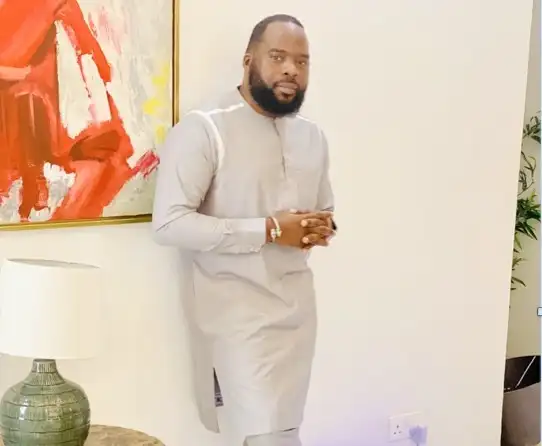Gbadebo Rhodes-Vivour, the former Lagos State governorship candidate on the Labour Party platform, has raised concerns about the rising hardship faced by Nigerians under the current administration. Speaking candidly, he criticized the government for its inconsistent economic policies and for indulging in luxury despite claims of financial constraints.
Rhodes-Vivour highlighted that while the removal of the fuel subsidy was a necessary step to eliminate corruption in the subsidy system, its implementation lacked foresight and adequate planning. He pointed out that the abrupt removal exacerbated existing economic challenges, leading to unprecedented hardships for ordinary Nigerians.
“The policies are not well thought out. They are not bad policies,” he stated. “We have to stop paying subsidy because we find that we are subsidizing a whole looting mechanism. The amount of products that we actually demand, a lot of these products that we are subsidizing end up in neighboring countries.”
He suggested that a gradual removal of the subsidy would have allowed for better management of its economic impact. Rhodes-Vivour also criticized the absence of comprehensive measures to mitigate the effects of subsidy removal on critical aspects like food inflation and business operations. He noted that rising costs of transportation and logistics, stemming from the policy, have directly contributed to increased food prices and operational expenses.
“How are you going to mitigate against all these things? How are you going to mitigate against the higher cost of delivering service, of running businesses? What can you put in place now? That is the cushioning policymaking that I expect to see,” he explained.
Rhodes-Vivour expressed frustration over the government’s spending habits, accusing it of hypocrisy. He argued that while the administration laments about being on the verge of bankruptcy, it continues to allocate funds for luxury items like private jets and bulletproof cars. This, he said, creates a disconnect between the government’s actions and its rhetoric about economic challenges.
“At this point in time, this policy and a set of policies have put Nigerians into the hardest period of their lives. Even me coming of age, I’ve not known Nigeria to be harder than what Nigerians currently are facing. At the same time, we are still hearing that you are buying private jets. You’re using billions to buy bulletproof cars. That doesn’t seem like you’re doing things because you say that we’re on the verge of bankruptcy,” he remarked.
Rhodes-Vivour also criticized the lack of accountability and transparency in managing public funds and loans. He decried the absence of oversight mechanisms to ensure prudent use of resources and lamented the government’s dismissive attitude toward public concerns.
“There is no accountability; deficient is being too kind. There is no accountability. There is no transparency in the way these loans are being managed, in the way monies are being handled. They are just spending. There’s no shame. There’s no care. It’s like, what are you going to do about it?”
Rhodes-Vivour underscored the importance of democracy in holding leaders accountable. He argued that if politicians were more mindful of the electorate’s power to remove them from office, governance standards would improve drastically.
“This is why democracy is so important. If politicians understand that the people put them in and can take them out, the way they govern will be drastically different,” he concluded.
Rhodes-Vivour’s remarks resonate with many Nigerians who are calling for better governance, transparency, and policies that genuinely address the country’s economic challenges. His critique serves as a wake-up call for leaders to align their actions with the pressing needs of the populace.












I think Nigeria should consider implementing a universal basic income to address economic hardship. It could be a game-changer!
I think the article missed the mark. The real challenge in Nigeria is not just economic, but also political corruption.
I think the government should focus on developing agriculture instead of relying on oil. Its time for a new approach!
I dont buy the whole economic hardship narrative in Nigeria. Maybe its time for some innovative solutions instead of complaints.
I think corruption is the root cause of Nigerias economic hardship. We need leaders who truly care about the people.
I disagree with the articles focus on economic challenges in Nigeria. We should also discuss cultural resilience and innovation.
Economic challenges are crucial. Without stability, cultural resilience and innovation struggle to thrive.
I think the article overlooked the potential for innovation and entrepreneurship to thrive in Nigerias economic hardship. Lets focus on solutions, not just challenges.
Innovation requires acknowledging challenges first. Solutions built on reality are stronger.
I think we should all just switch to a barter system. Who needs money anyway? Lets bring back the good ol days!
Money is essential for our modern economy. Barter system isnt practical in todays world.
I think Nigeria should consider legalizing marijuana to boost the economy. It could create jobs and generate revenue. Thoughts?
Legalizing marijuana is not the solution for Nigerias economy. We need sustainable industries, not drugs.
I think Nigerians should embrace cryptocurrency as a solution to economic challenges. Its time to think outside the box!
Cryptocurrency is risky and unstable. Nigerians need sustainable economic solutions, not quick fixes.
I think Nigerians should focus on entrepreneurship instead of waiting for the government to solve everything. Lets take control of our own future!
Entrepreneurship is great, but government accountability is crucial for a stable future too.
I cant help but wonder, can Nigeria overcome these challenges or are we stuck in a never-ending cycle? What do you think?
Who else thinks the government needs to step up and address the economic challenges in Nigeria ASAP? Its time for real action!
Is it really possible for Nigeria to overcome its economic challenges? Lets discuss solutions and possibilities together.
I think its time for the government to step up and address the economic challenges in Nigeria. Enough talk, action needed now.
Are we really prepared to face the tough times ahead in Nigeria? Lets discuss our game plan.